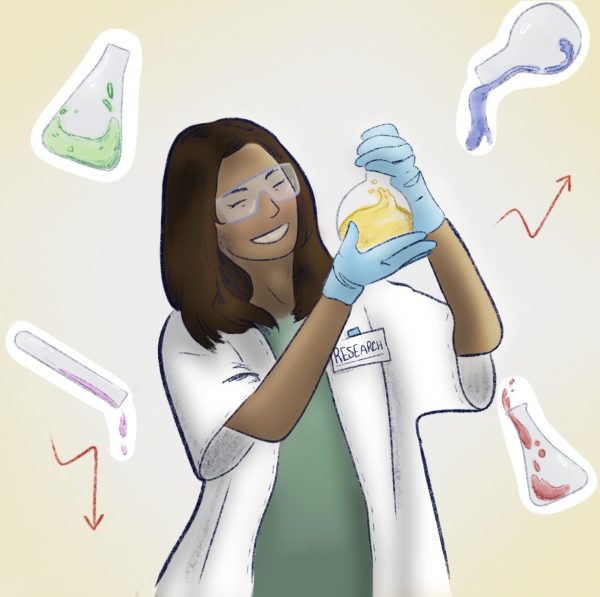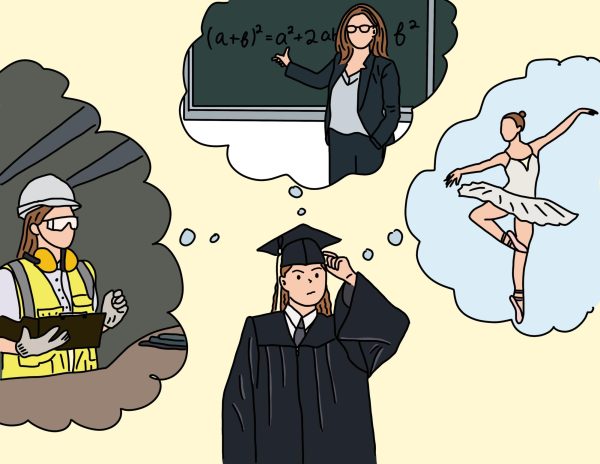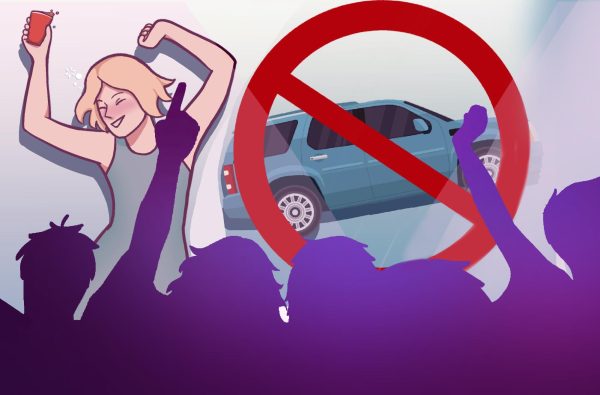The end: Time to repay loans, go to graduate school, or find a job
May 1, 2015
The time has come to graduate.
From one graduate to another, congratulations! Now the real work begins.
Before you go celebrate, there are several things you should be thinking about.
Exit Counseling
Back in the day when you first borrowed federal student loans as a college student, you had to complete a mandatory loan borrowing tutorial called “Entrance Loan Counseling” in order to get the loan funds you wanted for your education.
Now, it’s time to do a different kind of counseling: Exit Counseling. So, what is Exit Counseling anyways?
Exit Counseling, online at studentloans.gov, provides important tools and information you’ll need to know about your loans, including your repayment options, budgeting calculators, debt management strategies and more. Exit Counseling helps prepare students for repaying their loans and outlines what your rights and responsibilities are.
Completing Exit Counseling also helps you set up repayment details with the loan servicer. This gives you the ability to choose a repayment plan and establish how to make payments.
If you borrowed Federal Direct Loans (subsidized and unsubsidized loans) at any point when you were a student, you need to complete Exit Counseling. Important Note: if at any time during your academic career you drop below halftime enrollment or completely withdraw from classes, you will be notified that you have to complete Exit Counseling, and then you would be expected to start loan repayment six months after that point.
If you took out a different type of loan, like a Perkins, Nursing, or Private Loan, you need to contact your loan servicer for details about the repayment process.
If you cannot make a payment, it is important to contact the loan servicer immediately in order to find out what your repayment options are. There are more options now than ever with the loan servicer if you ever find yourself in this situation.
Not making the required payments toward student loans has serious implications. Not paying student loans can result in loan default, which negatively impacts your credit score. A low credit score means borrowing money in the future, for a car or home, is increasingly difficult. Additionally, if you go into default on your student loans, your tax return refund (if you receive one) can be withheld and applied toward your current outstanding student loan debt.
Student Financial Services (SFS) has a wealth of information to assist you with the transition into the “real world” of paying back student loans. Visit finaid.wsu.edu/helpful-information/information-for-graduating-seniors/ for more information. Plus, feel free to call, email, or stop by the SFS office if you need the staff’s assistance. The office doesn’t close down for the summer and after graduation, you may have a clearer mind and might want to ask a few questions.
Finding that Job or Going to Graduate School
Some of you may already be thinking about where you’re going to go once you graduate; I know I am.
This is the epitome of your entire work as a college student, whether you’re getting your bachelor’s, masters or doctorate degree.
While getting your degree is a magnificent feat of greatness, there are several things you should be aware of as you graduate and prepare for the next step.
For those of you moving onto graduate school, I congratulate you on your admittance. As I’m about to get a master’s degree myself, I can tell you that graduate school is a long and winding road. There may be times where everything seems so overwhelming and strenuous that you may question why you chose to attend graduate school. I can tell you that in the end, it’s truly satisfying to obtain a degree less than 10 percent of the global population has.
If graduate school isn’t for you right now, get ready for the high road of applying for jobs.
Be prepared to hear the word “no” a lot. I have already begun the process of applying for jobs myself, and it’s truly one of the most challenging processes to endure. Many a times I have wanted to give up.
How do you handle the “no’s” during this job search process? Take your mind off it; don’t dwell on the job search 24/7. Apply for a certain number of jobs per day or week. After taking time to search and apply for jobs daily or weekly, do something fun.
As a member of the WSU 2015 graduating class, I congratulate each and every one of you, best of luck in the world and make it your own adventure.




















